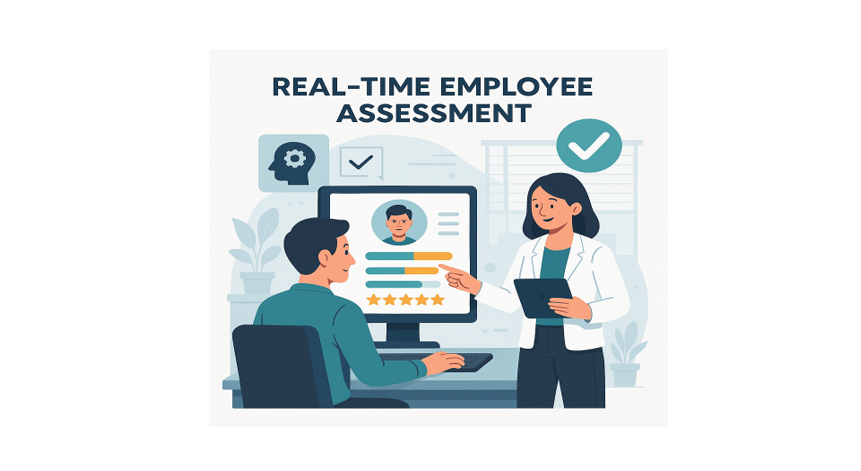Transforming HR with AI: Designing Motivational Systems for the Modern Workplace
Main Article Content
Abstract
This article focuses on the study and design of motivational systems in organizations that integrate Artificial Intelligence (AI) technology into human resource management. It explores the challenges and opportunities posed by AI, particularly in analyzing employee behavior, career development planning, and fostering employee engagement. The study employs data analysis from case studies of organizations utilizing AI, along with in-depth interviews with executives and employees, to identify key factors influencing the creation of effective motivational strategies. The findings reveal that designing motivational systems with AI as a core component can enhance communication efficiency, align organizational goals, and customize motivation strategies to suit individual employees. However, the success of such systems depends on transparency in AI usage, employee education about the technology, and maintaining a balance between AI and human-centric factors. This article provides actionable insights for HR leaders to implement motivational systems that enhance employee satisfaction and workplace productivity.
Downloads
Article Details

This work is licensed under a Creative Commons Attribution-NonCommercial-NoDerivatives 4.0 International License.
References
Bajaramedho, P. P. (2024). Motivating Operational Staff for Self-Development. Journal of Wisdom and Morality, 1(3), 32–42. (In Thai)
Boontiang, N. (2019). Training Readiness, Training Process, and Training Satisfaction Affecting Employees, Motivation for Training Development through Training Program in the Commercial Banking on Ratchadaphisek Road. [Master's Thesis, Bangkok University]. DSpace at Bangkok University. http://dspace.bu.ac.th/jspui/handle/123456789/4285. (In Thai)
Brown, K. G., & Sitzmann, T. (2011). Training and Employee Development for Improved Performance. In Zedeck, S. (Ed.), APA Handbook of Industrial and Organizational Psychology (2, 469–503). American Psychological Association. https://doi.org/10.1037/12170-016.
Chanpetch, N., & Songserm, U. (2024). Artificial Intelligence (AI): Educational Applications. Journal of Teacher Professional Development, 6(1), 1-13. (In Thai)
Chawananaraset, P., & Ngamjit, W. (2021). Effects of Program to Develop Potential and Roles in Community Neighboring School to Solve Students’ Tobacco Problems: Boon Wattana School, Mueang District, Nakhon Ratchasima Province. Regional Health Promotion Center 9 Journal, 15(37), 282–297. (In Thai)
Digital Economy Promotion Agency. (n.d.). The Rapid Advancement of Artificial Intelligence is Transforming the Workforce, What Skills should We Develop to Remain Employable and Avoid Unemployment?. https://www.depa.or.th/th/article-view/ai-development-labor-impact. (In Thai)
Fahmy, Y. (2024). Student Perception on AI-Driven Assessment: Motivation, Engagement and Feedback Capabilities. [Bachelor Thesis, University of Twente]. UT Student Theses. https://purl.utwente.nl/essays/100985.
Jacobs, R., & Washington, C. (2003). Employee Development and Organizational Performance: A Review of Literature and Directions for Future Research. Human Resource Development International, 6(3), 343–354. https://doi.org/10.1080/13678860110096211.
Jiratrakulwat, B. (2023). Job Competence and Satisfaction, Meaningful Work, Supervisor Support, Organizational Support and Reward Affecting Engagement with Objective and Key Results (OKRs) of Employees in Bangkok. [Master's Thesis, Bangkok University]. DSpace at Bangkok University. http://dspace.bu.ac.th/jspui/handle/123456789/5558. (In Thai)
Kaewkua, V. (2023). Learning Data Science and AI: Machine Learning with Python. Journal of Social Sciences in Measurement Evaluation Statistics and Research, 4(1), 60–63. (In Thai)
Katemala, S., Kerdnoonwong, S., & Suksathid, W. (2016). The Effectiveness of Training Program for Career Development Based on Two –Generation Approach. Veridian E-Journal,Silpakorn University, 9(2), 287-304. (In Thai)
Kittipalo, P. I. (2024). Leadership of Educational Administrators in the AI era According to the Brahmavihāra 4. Journal of Innovation Research on Education and Technology, 2(3), 53–65. (In Thai)
Kocharadkaewfa, A. (2023). The Impact of Artificial Intelligence (AI) Adoption on Job Satisfaction among Office Employees in Thailand. [Master’s Thesis, Mahidol University]. CMMU Digital Archive. https://archive.cm.mahidol.ac.th/handle/123456789/5260. (In Thai)
Mahesh, B. (2020) Machine Learning Algorithms-A Review. International Journal of Science and Research, 9(1), 381-386. https://dx.doi.org/10.21275/ART20203995.
Mardyan, W., & Noknoi, C. (2024). The Impact of Artificial Intelligence (AI) on Organizational Culture and Employee Relationships in the Credit Department: A Case Study of a Financial Institution. Journal of Roi Kaensarn Academi, 9(11), 620–631. (In Thai)
Mihale-Wilson, C., & Carl, K. V. (2024). Designing Incentive Systems for Participation in Digital Ecosystems-An Integrated Framework. Electronic Markets, 34(1), 16. https://doi.org/10.1007/s12525-024-00703-5.
Muandej, N. (2023). Factors Influencing the Adoption of AI Technology in Accounting Practices of Accountants in Bangkok: A Case Study of ChatGPT. [Unpublished Master Thesis]. Thammasat University. (In Thai)
Punthitamethee, P. B. (2024). Principles of Human Resource Management Aligned with the Current Situation. Journal of Wisdom and Morality, 1(2), 28–45. (In Thai)
Sanpakaew, N. (2023). Guidelines for Promoting Teachers in Learning Management in the Artificial Intelligence Era. Journal of Innovation Research on Education and Technology, 1(2), 44–50. (In Thai)
Siripatcharanan, L., Chirinang, P., Chaisakunkiat, U., & Chandarasorn, V. (2023). Motivating Employees in the Organization for Modern Management. Journal of Administrative and Management Innovation, 11(1), 127-136. (In Thai)
Somsuphaprungyos, S., Tanveenukul, R., & Nokkruth, B. (2024). The Development of a Real-time Data Collection System from Sensor Networks to Support Smart Farming Application Development in Communities. SAU Journal of Science & Technology, 10(2), 74–84. (In Thai)
Taweepho, R., Palachit, C., & Boocharoen, N. (2016). The Personnel’s Competency Development for Generation Y of The 5 stars Chain Hotels in Bangkok. Burapha Journal of Business Management, Burapha University, 5(2), 50-62. (In Thai)
Tivawong, N. (2012). A Web-Based Information System for Performance Evaluation Case Study: Royal Thai Armed Forces Headquarter. [Unpublished Master Thesis]. Dhurakij Pundit University. (In Thai)


